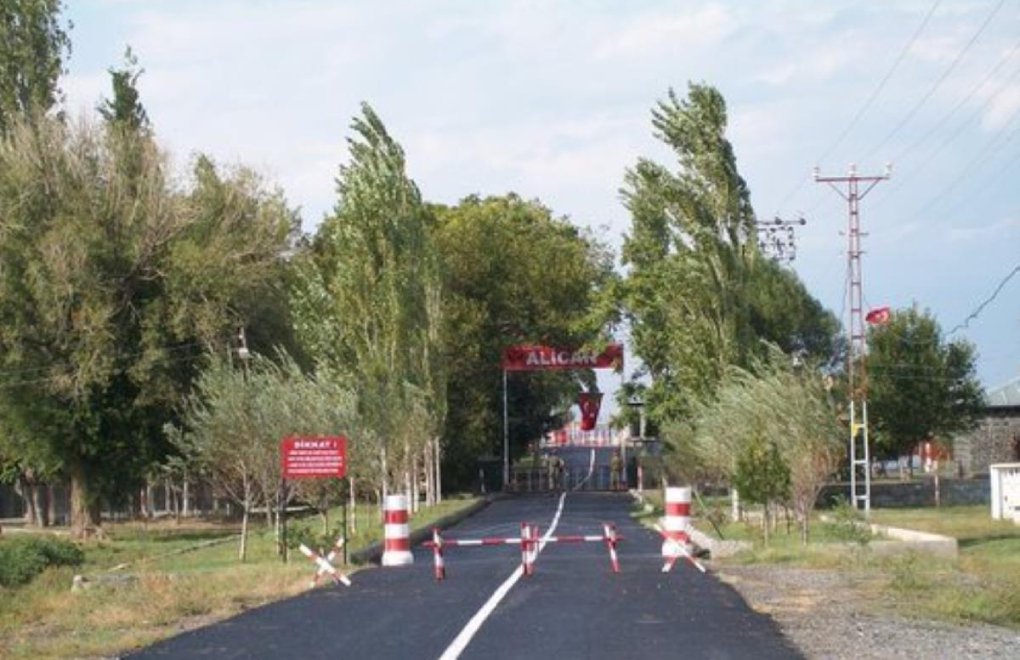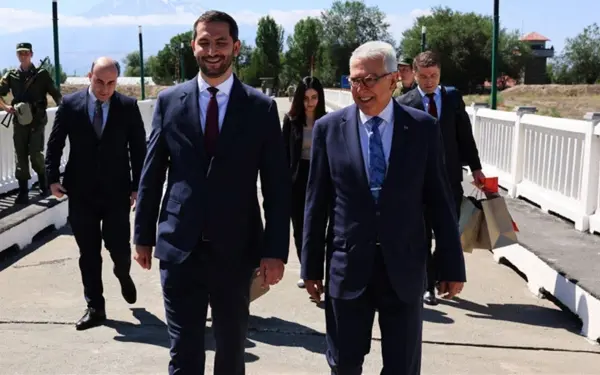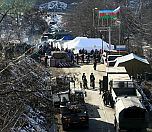Click to read the article in Turkish
Armenia's Foreign Minister Ararat Mirzoyan announced that they are preparing to open the Armenia-Turkey border to third-country citizens and people with diplomatic passports before the 2023 tourism period.
Speaking in the Foreign Relations Committee meeting of the parliament of his country, he expressed there was a consensus on this issue between Turkey and Armenia.
Mirzoyan also stated that they had re-confirmed with his counterpart Mevlüt Çavuşoğlu that they are ready for opening the border to third-country citizens and people with diplomatic passports.
Turkey-Armeni̇a border
Alican Gate, the only border gate allowing road transport between Turkey and Armenia was closed by Turkey in 1993 during the first Nagorno-Karabakh war between Armenia and Azerbaijan.
The Turkey-Armenia border gate temporarily opened on February 11 to carry aid following Feb. 6 earthquakes that hit the south and southeast of Turkey and north of Syria.
Trucks coming from Armenia passed the Margara Bridge at the Alican Border Gate in Iğdır and moved on to the earthquake-hit regions.
The border for road transport was also opened in 1988 in order for Turkey to send Armenia humanitarian aid after an earthquake in Armenia in which 30 thousand people had lost their lives.
Turkey-Armenia relations
Turkey was the first country to recognize Armeni̇a's independence in 1991.
Relations between the former Soviet republics of Azerbaijan and Armenia have been tense since 1991, especially because of Nagorno-Karabakh.
Alican Gate between Turkey and Armenia was closed by Turkey in 1993 during the first Nagorno-Karabakh war between Armenia and Azerbaijan.
A "Protocol on the Development of Bilateral Relations" was signed by Turkey's then-Foreign Minister Ahmet Davutoğlu and Armeni̇a's then-Foreign Minister Eduard Nalbantyan on October 11, 2009.
Signed in Zurich in Switzerland, the "Protocol on the Establishment of Diplomatic Relations" foresaw that the two states would recognize each other's borders. But no progress was made and protocols became invalid.
New clashes erupted on September 27, 2020, and during the six-week war, Azerbaijan retook several cities and 300 settlements and villages.
The conflict ended in November 2020 in a Russia-brokered deal that saw Armenia cede swathes of territory it had occupied for decades.
In January 2021, the leaders of the three countries agreed to develop economic ties and infrastructure for the benefit of the entire Caucasus region. (HA/PE)







.jpg)
